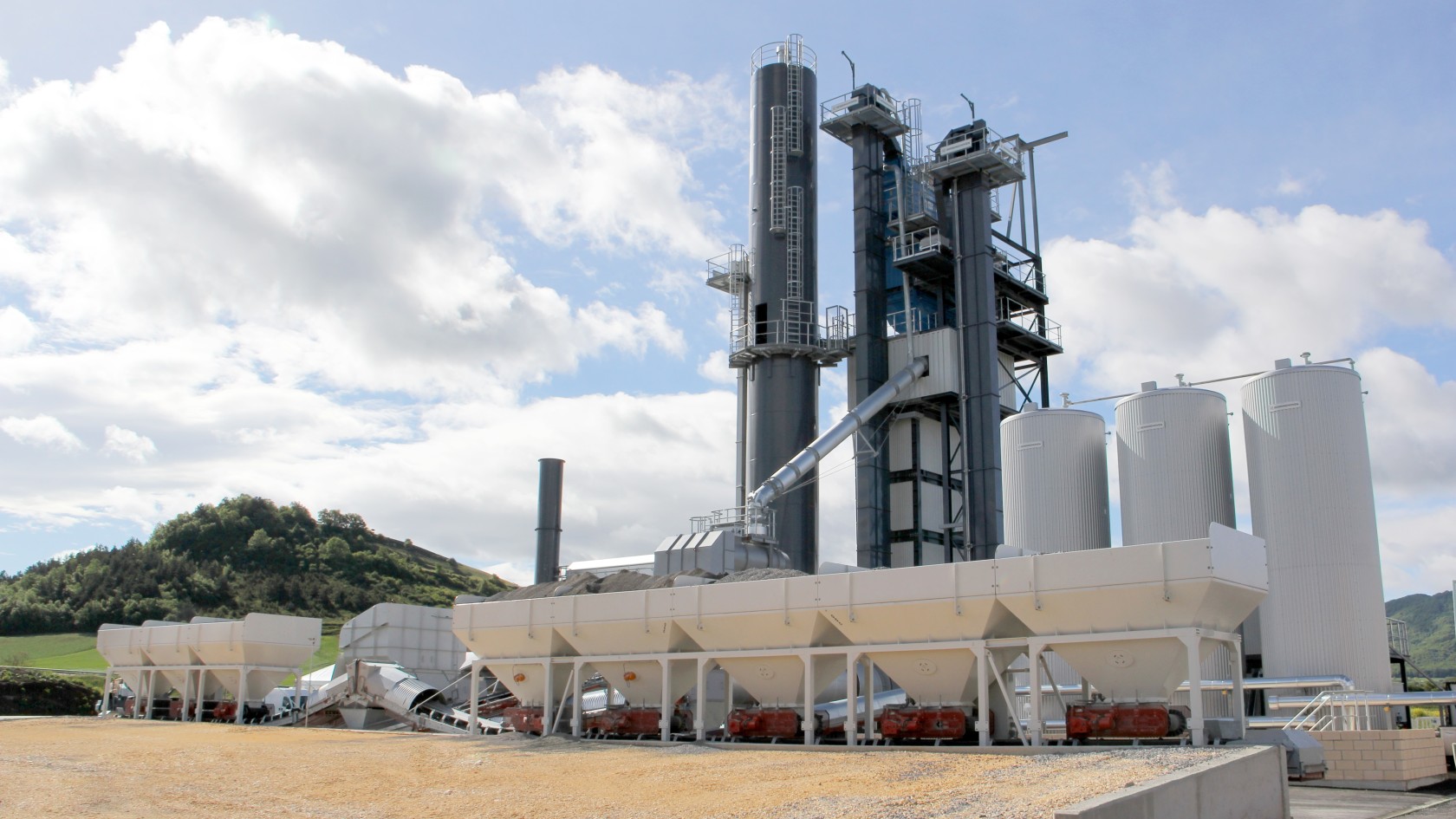Asphalt production, next level.


Pathbreaking technologies for asphalt with a 30% RAP material rate and for low-temperature asphalt with foamed bitumen: with a BEN-NINGHOVEN ECO 3000 mixing plant, contractor Balgorza S.A. is gear-ing itself up for the challenges of today and tomorrow.
In road construction and pavement rehabilitation projects alike, the im-portance of cost-effectiveness and environmental protection is rising in the Spanish road construction industry, too. Contractor Balgorza S.A., based in Vitoria-Gasteiz, is gearing up for the future with technologies from BENNING-HOVEN. Specializing in the production and paving of asphalt of all kinds, Bal-gorza have invested in making their production more sustainable, cost-efficient and sparing on resources. For instance, they have acquired the BENNINGHOVEN system for dosing into the mixer as a cold feed system. This supports a 30% RAP material rate. They have also invested in a foamed bi-tumen module for the production of low-temperature asphalts at a lower – and thus more energy-efficient – material temperature. Convinced by the advantages this technology offers, Balgorza became the first Spanish com-pany to invest in a BENNINGHOVEN asphalt mixing plant – and hence in their own future.
Rafael Pedreira, Director General Balgorza S.A.
Prior to the start of production, the transport and erection proceeded quick-ly. After all, ECO plants offer owners maximum flexibility: the container de-sign supports rapid changes of location at any time, while logistics costs are low. Dismantling and assembly are a simple process. Not least because of the “plug & play” principle of the electronics, ECO plants are up and running particularly quickly at new locations – a fact which also gives Balgorza flexi-bility. The modular structure also permits the integration of a large number of high-tech components that can be tailored to the specific requirements of asphalt mixing plant operators. This improves both economic efficiency and investment security, ensuring that Balgorza can also meet future require-ments with the ECO 3000.
Recycling is also on the rise in Spain. It‘s a trend that Balgorza have recog-nized, which is why they systematically make full use of their capacities for the recycling of resources. After all, newly processed aggregate – known as mineral – is more expensive than reclaimed asphalt. To conserve resources and reuse reclaimed material from pavement rehabilitation projects directly, Balgorza opted for recycling technology from BENNINGHOVEN. With the sys-tem for dosing into the mixer as a cold feed system, an RAP material rate of up to 30% can be achieved. The feed process can be summed up as follows: a wheeled loader delivers the reclaimed or milled-off asphalt into an RAP cold feed hopper. From there the material – dosed by belt scales – is carried on an RAP elevator directly to the mixing tower, where it is fed to the 3t mixers of the ECO 3000 by a chute.
Apart from the recycling of raw materials, the amount of energy used is a major factor when it comes to operating the asphalt mixing plants efficiently, with maximum environmental friendliness. Here too, Balgorza are in the vanguard – with an innovative foamed bitumen module for producing low-temperature asphalts, a global technology trend. The asphalt is prepared at a temperature of 110°C, some 50°C lower than the 160°C required for con-ventional asphalt. This reduces energy consumption for asphalt production by around 9kWh/t, which equates to 0.9l of heating oil. CO2 emissions are also reduced: Balgorza’s ECO 3000 achieves this by using foamed bitumen, an innovative binding agent.
The foamed bitumen is produced in a pressurized chamber that is integrated into the mixer and connected to the conventional bitumen supply system. A small quantity of water and air is then injected at high pressure into the normal bitumen, which is at a temperature of 175°C. The surface area of the bitumen rapidly expands by a factor of 20 and the resultant foamed material is then added into the mixer, where it is mixed with mineral. The large sur-face area causes foamed bitumen to durably coat the mineral, lending it the required durability, while the water contained in it evaporates. One of the characteristics of low-temperature asphalt is its lower viscosity, which makes it temporarily easier to pave.
The production and use of foamed bitumen as a binding agent is a well es-tablished technology throughout the world. It is playing an ever more im-portant role in road construction and pavement rehabilitation and has in-creasingly come to the attention of highways authorities and contractors. The WIRTGEN GROUP have been using foamed bitumen since as long ago as 1995 – and are rightly regarded as the foamed bitumen pioneers. The pro-cess was originally developed for cold recycling – a WIRTGEN speciality.